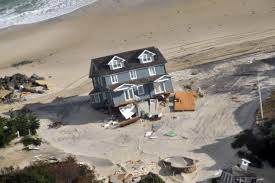Rural Access to Emergency Devices
The purpose of the Rural Access to Emergency Devices (RAED) Grant Program is to provide funding to rural community partnerships to purchase automated external defibrillators (AEDs) that have been approved, or cleared for marketing by the Food and Drug Administration; and provide defibrillator and basic
life support training in AED usage through the American Heart Association, the American Red Cross, or other nationally-recognized training courses.
A community partnership is composed of local emergency response entities such as community training facilities, local emergency responders, fire and rescue departments, police, community hospitals, and local non-profit entities and for-profit entities.
In the past, AEDs have been placed in colleges, universities, community centers, local businesses, law enforcement and ambulance vehicles, fire trucks, 911 dispatch centers, and offices.
The grant creates opportunities to educate the public on AEDs via advertisements, news media, schools, churches, shopping malls, restaurants, home owner associations, businesses, local government bodies, security firms, etc.
A community partnership is composed of local emergency response entities such as community training facilities, local emergency responders, fire and rescue departments, police, community hospitals, and local non-profit entities and for-profit entities.
In the past, AEDs have been placed in colleges, universities, community centers, local businesses, law enforcement and ambulance vehicles, fire trucks, 911 dispatch centers, and offices.
The grant creates opportunities to educate the public on AEDs via advertisements, news media, schools, churches, shopping malls, restaurants, home owner associations, businesses, local government bodies, security firms, etc.
Agency: Department of Health and Human Services
Office: Health Resources and Services Administration
Estimated Funding: $100,000
Office: Health Resources and Services Administration
Estimated Funding: $100,000
Obtain Full Opportunity Text:
https://grants.hrsa.gov/webExternal/SFO.asp?ID=A2E124CB-29FD-4AB1-B063-9214140A1420
Additional Information of Eligibility:
Community partnerships composed of local emergency response entities such as community training facilities, local emergency responders, fire and rescue departments, police, community hospitals, and local non-profit entities and for-profit entities concerned about cardiac arrest survival rates are eligible to apply.
Each community partnership must clearly identify the lead applicant from the group of entities making up the partnership.
The lead applicant, also known as the grantee of record, will act as the fiscal agent for the partnership.
A list of rural areas eligible to receive AEDs is available on the Office of Rural Health website.
Eligible rural counties can be found at http://datawarehouse.hrsa.gov/RuralAdvisor/RuralHealthAdvisor.aspx .
The eligible rural census tracts of urban counties are included in the document identified above.
To identify the Census tract where your organization is located, visit the webpage at http://www.ffiec.gov/geocode/default.aspx .
Full Opportunity Web Address:
https://grants.hrsa.gov/webExternal/SFO.asp?ID=A2E124CB-29FD-4AB1-B063-9214140A1420
Contact:
CallCenter@HRSA.GOVCallCenter@HRSA.GOV
Agency Email Description:
Contact HRSA Call Center at 877-Go4-HRSA/877-464-4772;301-998-7373 or email
Agency Email:
CallCenter@HRSA.GOV
Date Posted:
2011-01-04
Application Due Date:
2011-02-28
Archive Date:
2011-04-29
Social Entrepreneurship
Spotlight
When it Comes to Social Enterprises, Failure is the Best Platform for Innovation

In the world of social enterprises, failure is a cringe-worthy moment nobody wants to talk about. But, social entrepreneurs can benefit from their failures.

